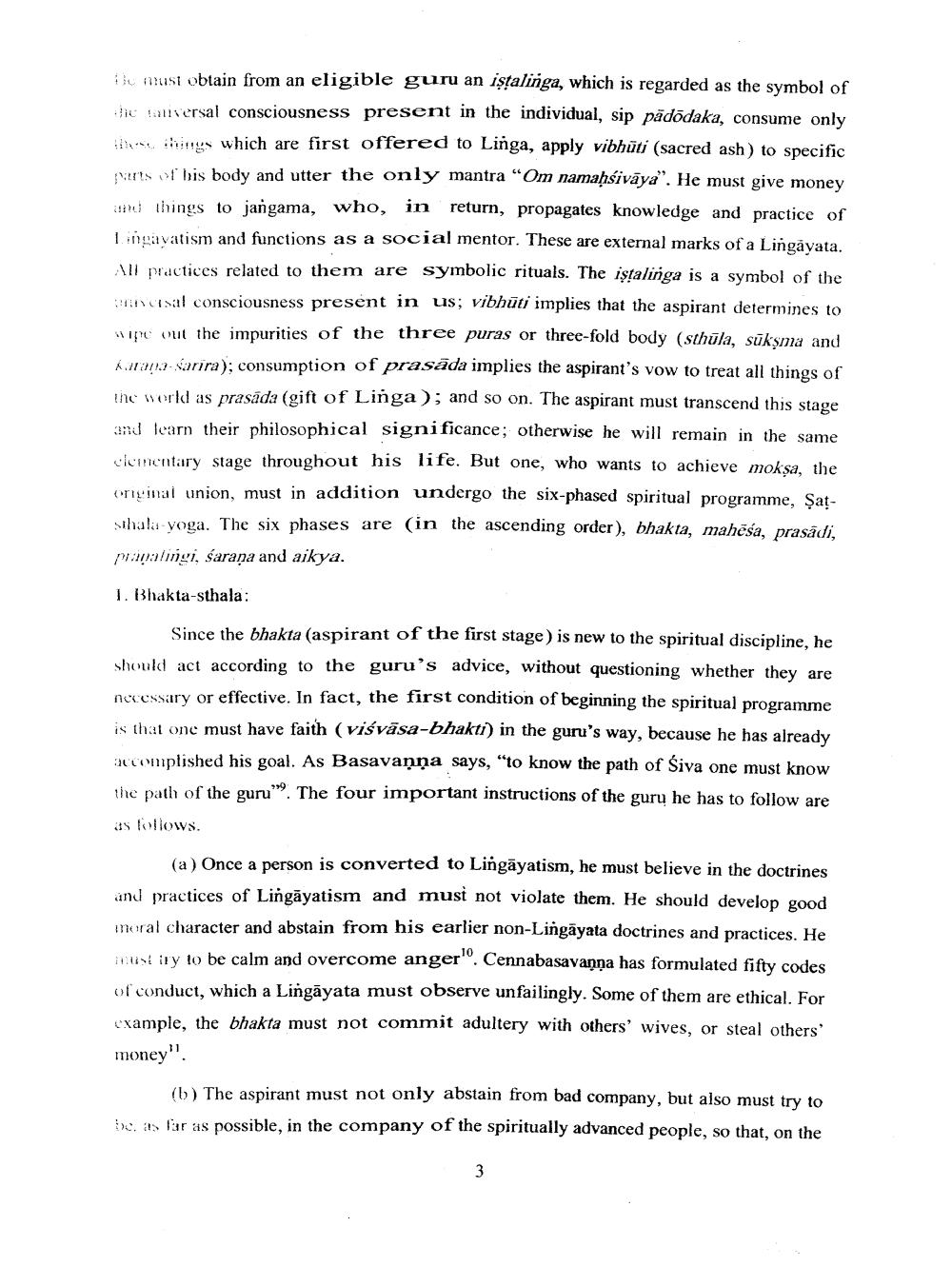Book Title: Synthesis of Yoga in Lingayatism Author(s): N G Mahadevappa Publisher: N G Mahadevappa View full book textPage 3
________________ itu must obtain from an eligible guru an işgalinga, which is regarded as the symbol of alversal consciousness present in the individual, sip pädödaka, consume only these things which are first offered to Linga, apply vibhūti (sacred ash) to specific ents of his body and utter the only mantra “Om namaḥśivāya". He must give money w things to jangama, who, in return, propagates knowledge and practice of lineavatism and functions as a social mentor. These are external marks of a Lingayata. All practices related to them are symbolic rituals. The iştalinga is a symbol of the tal consciousness present in us; vibhūti implies that the aspirant determines to wipe out the impurities of the three puras or three-fold body (sthūla, sūksma and kaasarira); consumption of prasāda implies the aspirant's vow to treat all things of the world as prasáda (gift of Linga); and so on. The aspirant must transcend this stage and learn their philosophical significance; otherwise he will remain in the same clementary stage throughout his life. But one, who wants to achieve moksa, the original union, must in addition undergo the six-phased spiritual programme, Şatsthali yoga. The six phases are (in the ascending order), bhakta, mahēša, prasadi, pawalingi, sarana and aikya. 1. Bhakta-sthala: Since the bhakta (aspirant of the first stage ) is new to the spiritual discipline, he should act according to the guru's advice, without questioning whether they are necessary or effective. In fact, the first condition of beginning the spiritual programme is that one must have faith (viśvāsa-bhakti) in the guru's way, because he has already accomplished his goal. As Basavaņņa says, "to know the path of Siva one must know the path of the guru". The four important instructions of the guru he has to follow are as follows. (a) Once a person is converted to Lingāyatism, he must believe in the doctrines und practices of Lingāyatism and must not violate them. He should develop good moral character and abstain from his earlier non-Lingāyata doctrines and practices. He instity to be calm and overcome anger". Cennabasavanna has formulated fifty codes of conduct, which a Lingāyata must observe unfailingly. Some of them are ethical. For example, the bhakta must not commit adultery with others' wives, or steal others money". (b) The aspirant must not only abstain from bad company, but also must try to boas far as possible, in the company of the spiritually advanced people, so that, on thePage Navigation
1 2 3 4 5 6 7 8 9 10 11 12 13 14 15 16
